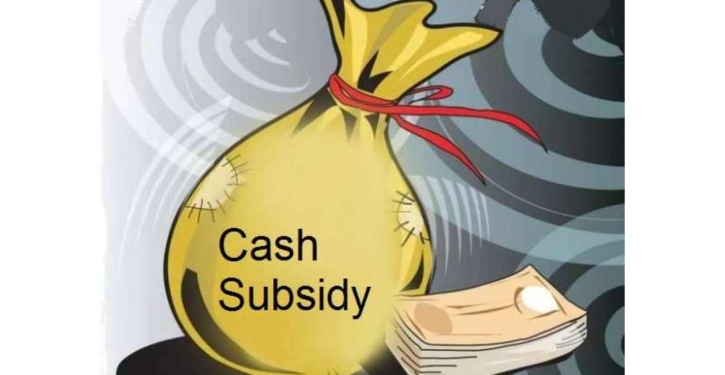Asif Showkat Kallol
Published:2022-11-13 16:44:27 BdST
Body formed to advise govt on phasing out of export subsidies: Official
The government has formed a “Subsidy Study Group” to examine the country’s cash incentive bundles meant for their phasing out in compliance with the WTO rules following Bangladesh’s economic graduation from LDC, an official of the commerce ministry, said.
The nine-member group was formed recently under a sub-committee on the Internal Resource Mobilisation & Tariff Rationalisation to meet the challenges of post-economic graduation. The study group is being supervised by the Director General of a Monitoring Cell under the Ministry of Finance, Arfin Ara Begum.
As per the terms of reference, the committee will review the effectiveness of the country’s cash incentive packages distributed among different export sectors.
Besides, the subsidies that are fitted with the WTO rules will be identified to get designated separately. The incentive bundles not complying with the WTO rules will be put in another sub-set.
An official of the commerce ministry said the subsidy and cash incentive should be withdrawn gradually from the budget for executing the WTO rules. Therefore, the government badly needs advice from experts on how to do it. Subsidies and incentives given to some sectors will definitely be rationalised under those rules, he added.
Former finance adviser to a caretaker government, AB Mirza Azizul Islam, said that subsidies and incentives are required for the development of various economic sectors of the country.
“It is necessary to review the subsidies and incentive outlay as Bangladesh graduates from LDC soon”, he said.
According to an official document, Bangladesh will be facing some challenges, such as loss in duty free-quota free market access, unilateral and preferential market access. Also, Bangladesh’s scope for concessional or low-interest funding from international and bilateral development partners and leniency in this regard will largely erode. And, export trade will have to comply with stringent international standards.
The subsidies in the budget for the 2022-23 fiscal year has been increased by Tk 15,920 crore to Tk82,745 crore, which is 1.9% of the country’s GDP.
For expanding exports, in the fiscal year of 2021-2022, Bangladesh had entitled 42 sectors for receiving the cash incentive against the export volumes. As per the current policy, the government offers1 percent to 20 percent of export revenue as a cash incentive.
A condition of minimum 30 percent local value addition has to be maintained to qualify for a cash incentive. This cash incentive has likely been one of the significant causes of Bangladesh’s exports soaring more than 34 percent to $52.08 billion in 2021-22.
Ironically, during the same time, Bangladesh has witnessed a rapid decline in its foreign currency reserve. Hence, the likely question is: could cash incentive-driven export growth be one of the causes of foreign currency erosion?
On August 16, a media report said some seven sub-committees have prepared draft strategies with a time-bound action plan to meet the challenges of LDC graduation.
The government formed a committee under the chairmanship of the Principal Secretary to the Prime Minister’s Office to prepare for the possible challenges that Bangladesh would face as a result of its graduation from a least developed country to a developing one.
The document mentioned that there would be seven sub-committees under this committee. Each sub-committee has members from private sector stakeholders and development researchers.
“These sub-committees are preparing draft strategies with a time-bound action plan to meet the challenges of LDC graduation,” it reads.
The document mentioned that the present government has been promoting a policy of executing Bilateral Free Trade Agreements (FTAs) and Preferential Trade Agreements (PTAs) in the context of potential trade challenges arising from LDC graduation.
Strategies for Preferential Market Access and Trade Agreement have been formulated as ways to address these challenges.
In this context, Bangladesh has signed a Preferential Bilateral Trade Agreement (PTA) with Bhutan under which 34 products of Bhutan will be duty-free in the market of Bangladesh and 100 products of Bangladesh will receive similar benefits in Bhutan.
In addition, a prioritisation list for the execution of PTA/FTA/CEPA with 13 potential trading countries and trade organisations like India, China, Japan, Singapore, Indonesia, Sri Lanka, Malaysia, Nepal, USA, Canada, Eurasian Economic Union, ASEAN, and Mercosur has been prepared.
Unauthorized use or reproduction of The Finance Today content for commercial purposes is strictly prohibited.


